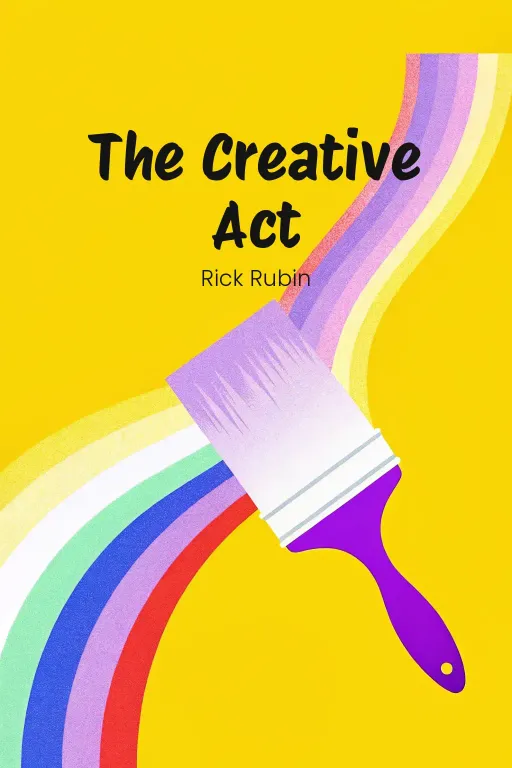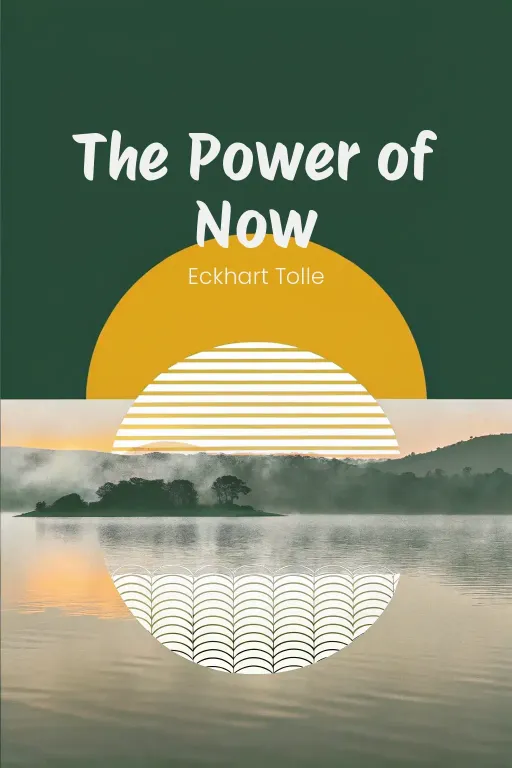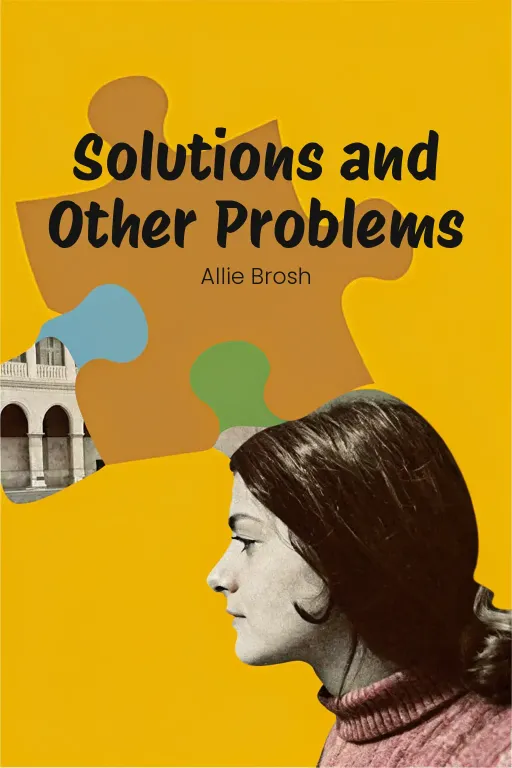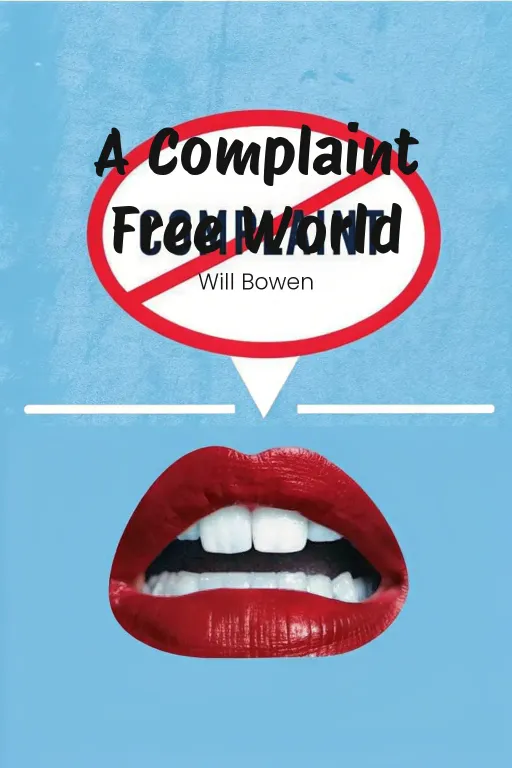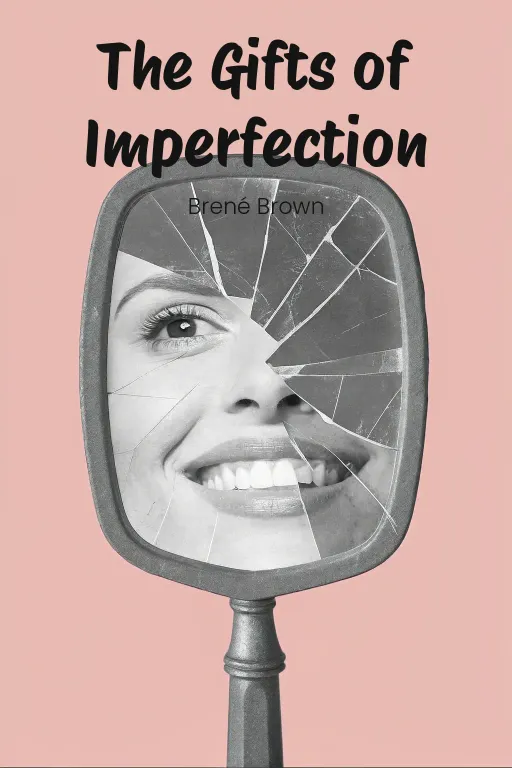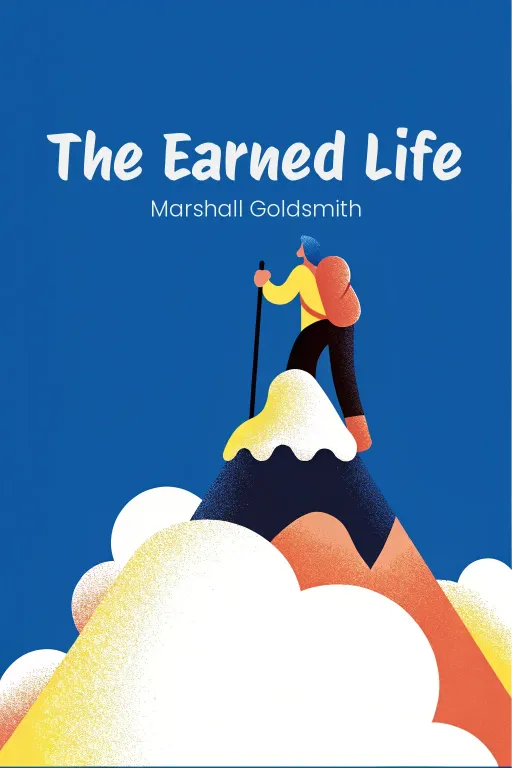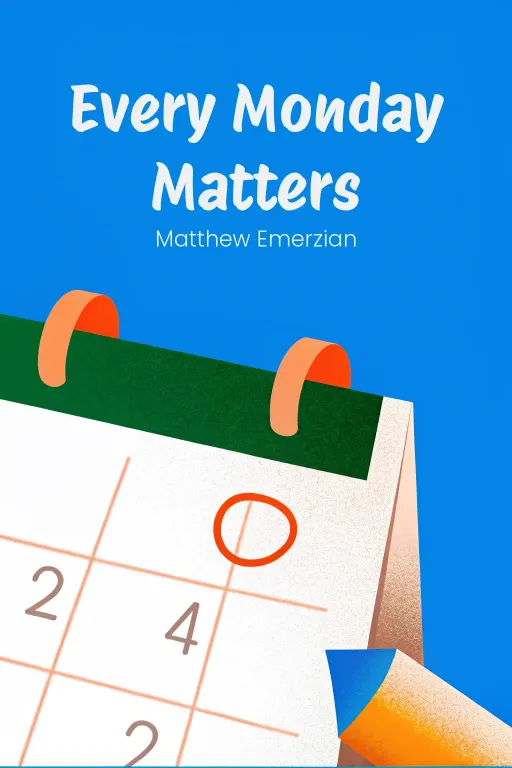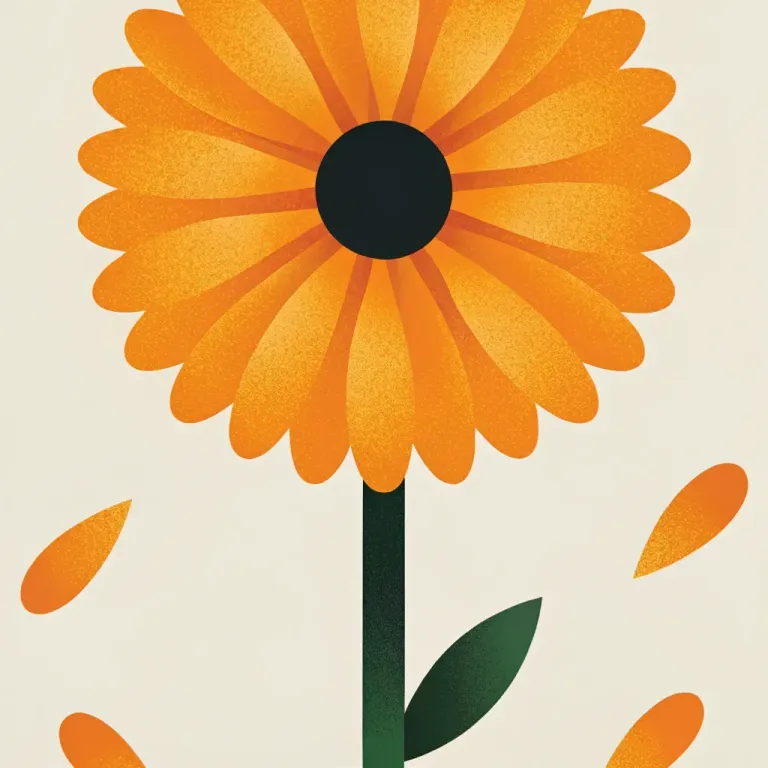
Tiny Tweaks, HUGE Happiness Boost!
Podcast by The Mindful Minute with Autumn and Rachel
Or, Why I Spent a Year Trying to Sing in the Morning, Clean My Closets, Fight Right, Read Aristotle, and Generally Have More Fun
Tiny Tweaks, HUGE Happiness Boost!
Part 1
Autumn: Hey everyone, welcome to the podcast! Rachel, let me ask you something, has it ever crossed your mind, "What if I could just nudge my happiness levels up a bit, without having to, you know, completely reinvent my life?" Rachel: Oh, you know it. Preferably with minimal effort, maybe while I'm catching up on my shows. Autumn: Well, maybe not absolutely zero effort, but what if it just took some small, deliberate tweaks? That's precisely what Gretchen Rubin delves into in her book, The Happiness Project. She basically spent a whole year experimenting with happiness theories, breaking it down month by month with these really practical resolutions—things like boosting your energy, nurturing relationships, making time for fun, and, importantly, just being more yourself. Rachel: So, a kind of scientific method applied to joy, then? Complete with spreadsheets and, of course, to-do lists? Autumn: Exactly! Rubin mixes research, her own experiences, and concrete steps to show that small, consistent changes—not necessarily these huge transformations—are what “really” move the needle. Rachel: Okay, you've got my attention, and maybe a little bit of my anxiety. But where do we even begin to unpack something like this? Autumn: Well, today we're going to break it down into three parts. First, the mindset piece—we'll explore how Rubin sets the stage for a happiness project. Then, we're diving into the whole month-by-month structure, looking at those specific, themed resolutions that shape her year. Rachel: Let me guess, January is all about energy and self-control because nobody wants to focus on gratitude when they're recovering from New Year's Eve. Autumn: You're spot on, although Rubin definitely makes it more appealing than it sounds! And finally, we'll look at some of the tough spots she runs into and the deeper lessons she learns about what fulfillment truly means. Rachel: So, we’re essentially walking through a blueprint for happiness, complete with both the sunshine and the occasional rain cloud? Ready to get started? Autumn: Absolutely, let’s dive in!
The Foundations of Happiness
Part 2
Autumn: Okay, so let's dive into the foundations of happiness. Rubin really tackles the fundamental questions here: Why even bother pursuing happiness? How do you kick off a project like this? And what’s the real key to shifting from just wishing you were happier to actively making it happen? Rachel: Exactly. What I appreciate about her approach is that it doesn't assume you're starting from rock bottom, right? I mean, Rubin's life looked great on paper – happy marriage, kids, successful career – but she still felt this underlying, persistent “midlife blah.” Autumn: Right. It wasn’t a crisis, but she had this moment of clarity, realizing she could live more deliberately, appreciate all the good things she had, and, as she puts it, "boost her happiness." It's so relatable, that feeling of just going through the motions instead of truly thriving. Rachel: And that epiphany – staring out a rainy bus window. Ah, very cinematic. It's like the ultimate modern "check engine" light for your soul. Autumn: Totally. And the impact of Rubin's realization is how she reframes happiness as something you create yourself. It's not about waiting for a promotion, the perfect holiday, or some lucky break. Her insight was – happiness is a proactive thing. You have to purposefully engage with it. Rachel: Which sounds inspiring, sure, but also a bit…daunting, right? I mean, where do you even begin with something as abstract as "happiness?" Autumn: That’s where Rubin emphasizes self-awareness. She starts by looking inward, figuring out what genuinely brings her joy and what zaps her energy. She calls it creating a "personalized happiness formula." Rachel: Okay, I like this. It feels very...practical, doesn't it? Rubin isn’t trying to push some universal recipe for joy. She starts with herself and acknowledges that what works for her might not work for me, or anyone else. Autumn: Exactly. For example, she recognizes her tendency to get snippy with her husband and kids. That irritability, not major fights, just those little irritating moments, often left her feeling disconnected. So, instead of this huge goal to become "a better wife and mom," she focused on something more specific: approaching daily family interactions with more patience and gratitude. Rachel: It’s kind of funny, though, isn’t it? How seemingly small shifts can feel like climbing Mount Everest. Deciding, "Okay, I’m going to stop snapping at my spouse" sounds easy, but anyone in a relationship knows those habits are tough when you're stressed. Autumn: So true. That’s why she breaks things down into manageable, bite-sized steps, aiming for progress, not perfection. For her, patience wasn't just about holding her tongue, it meant deliberately choosing to notice and value those happy moments with her family. Rachel: And that's where Rubin's personalization really shines. Instead of generic advice like "be more positive," she zooms in on what she finds difficult. It's almost like a happiness diagnostic. Spotting those little leaks in her emotional tank and patching them one by one. Autumn: Yes! It’s a great lesson for anyone starting this journey. Instead of trying to overhaul your whole life, focus on the specific things that matter most to you. Rachel: Speaking of focusing, I noticed action as a big strategy for Rubin. She repeatedly shows us that happiness isn’t based on huge overhauls. It’s about layering on small, meaningful habits that add up. Autumn: Exactly. Think of it as momentum. One positive change creating space for another. Like how she started by improving her energy levels in January: organizing her space, getting better sleep, creating routines to prepare her for the year, physically and mentally. That energy was the foundation for addressing other parts of her happiness. Rachel: Makes sense. It’s like saying you can't solve the equation of happiness if you're sleep-deprived and tripping over laundry, right? Autumn: Pretty much! And those adjustments – more sleep, decluttering, starting the day with intention – became essential. They weren’t just resolutions to be productive, but the groundwork for a more fulfilling life. Rachel: It’s refreshing, honestly. There’s no grand, Instagram-worthy epiphany here. It’s all very…real. Like realizing that picking up your socks or ditching the 2 a.m. scroll for a decent bedtime can actually lead to happiness. Autumn: And Rubin doesn’t just deal with logistics; she also gets into the philosophy of it all. She draws from psychologists, philosophers, even pop culture, emphasizing that happiness is a journey, a process, not some fixed state you achieve and then just keep forever. Rachel: So, basically, it’s the antidote to that "arrival fallacy" we all fall for. You know – this trap of thinking, "Once I tick off X, Y, or Z, then life will finally be amazing." Autumn: Exactly. Rubin flips that, showing us it’s about building happiness into the everyday, not waiting for some mythical future where everything magically clicks into place. It’s so empowering when you consider it. Rachel: It is. But let’s just rewind a bit here. I wanted to discuss her "lightening up" example with her kids. That was a small change that had a major effect on her relationships, right? Autumn: Oh, definitely. She decided to be more playful and embrace joyful chaos, especially with her daughters. It meant letting go of her need for order and control and just enjoying those silly moments. That shift brought her closer to her kids in a way that no fancy vacation ever could. Rachel: It's fascinating, because it highlights how happiness flourishes in the ordinary. In pillow fights and giggles, not in waiting for those picture-perfect, Hallmark-card moments. Autumn: Exactly. Ultimately, Rubin's work reminds us that happiness develops through self-awareness, personalized action, and consistent and deliberate effort. Rachel: And that’s the real takeaway, isn’t it? To start small, reflect often, and trust that those little, incremental changes will really add up to make a big difference.
Monthly Themes and Practical Resolutions
Part 3
Autumn: So, with that groundwork laid, Rubin then breaks down her year into actionable monthly themes. This is where the rubber meets the road, showing how those core principles translate into real-world, month-by-month experiments. Rachel: Ah, so like a monthly syllabus for the “School of Happiness,” right? Each month tackles a different “subject” in the grand pursuit of joy? Autumn: Exactly! It kicks off in January with “Boost Energy.” Rubin wisely realized that energy fuels everything else. A deficit can undermine any effort, while an abundance unlocks creativity, connection, and growth. Rachel: January—all about action, no time for deep thoughts – I like it. What were the highlights? Autumn: First, prioritizing sleep. Rubin calls it foundational for both physical and emotional well-being. She describes how simply going to bed earlier dramatically impacted her productivity and mood. Simple tweaks, like ditching screens before bed and creating a calming routine, made a huge difference. Rachel: Makes total sense. Everyone preaches ambition and hustle, but if you're running on fumes, your “drive” isn't getting you far. Autumn: Exactly! And Rubin also touches on how our culture is changing around sleep—a friend joked, “Sleep is the new sex,” capturing how people now see sleep as an act of self-care, even status. Rachel: Status, I don't know, but I'll admit, I'm a lot less grumpy after eight hours. What's next after sleep? Autumn: Decluttering. Rubin operates on the principle that “outer order creates inner calm.” She systematically tackled messes at home—piles of papers, overstuffed closets—and noticed an almost immediate boost in mental clarity. Rachel: Here's a question: how much of this is about the stuff versus the mental clutter? Like, does clearing your desk free your brain, or is it just a sophisticated form of procrastination? Autumn: That's a great question. Rubin actually addresses that. She found decluttering wasn’t just about aesthetics; it was about confronting unfinished tasks and emotional baggage. Tackling those messes felt like closing open loops in her mind. So, it's definitely both. Rachel: Hmm… so clearing out that junk drawer isn’t just housekeeping — it’s therapy for the Type A crowd. Got it. Autumn: And rounding out January, Rubin adds consistent exercise into her day. She starts small—daily walks or brief weight-lifting sessions—and sees noticeable improvements in mood, energy, and focus almost immediately. Rachel: Let's pause here because this is key. Rubin doesn’t go for extreme makeovers, like marathon training. She chooses achievable actions, making her resolutions feel attainable. It's not "transform your life overnight." Autumn: Exactly, and that’s the brilliance of it. She builds momentum with smaller wins, like better sleep or decluttering, and carries that energy into February’s focus—relationships. Rachel: Ah, Valentine’s Month. So, I'm guessing Rubin throws in some "remember why you fell in love" Hallmark moments? Autumn: Not exactly! February’s theme is “Remember Love,” but it’s less about grand gestures and more about fostering intimacy in everyday moments. For example, she aims to stop nagging her husband, Jamie, and instead focuses on showing appreciation. Rachel: Interesting. Nagging's often just a warped signal for wanting support, but it doesn't land well. Autumn: Rubin makes that point, too! By minimizing criticism and actively expressing gratitude—thanking Jamie for little things, like making coffee or helping with their daughters—she noticed how it softened their interactions. He, in turn, became more affectionate and relaxed. Rachel: A virtuous cycle. Gratitude begets gratitude. Okay, devil's advocate time: what if only one partner is doing the work? That gratitude might not feel so virtuous if it’s one-sided, right? Autumn: True, but Rubin isn't saying gratitude alone solves everything. She also emphasizes empathy as critical. Like, when Jamie misplaced his keys one morning, Rubin resisted the urge to scold and instead offered practical help, like suggesting a designated spot for essentials. Small acts like those reinforce partnership, not resentment. Rachel: That’s surprisingly powerful. We think of love as these grand declarations, but she's saying the real work happens in the mundane. Autumn: Precisely. And that thread continues into Rachelh, where Rubin pivots to professional ambition and creativity under the theme “Aim Higher.” Rachel: Let me guess – this is when the blogging adventures start? Autumn: Bingo! Starting her blog was a bold step for Rubin. It pushed her to confront fears of failure and judgment, plus technical hurdles she didn’t feel equipped for. But taking that risk helped her grow in confidence and creativity. Rachel: I appreciate that she's not sugarcoating the challenges. Trying new things – blogging or whatever – always comes with stumbles. But that willingness to persist highlights that growth happens outside your comfort zone. Autumn: And she ties this in with building collaborative support systems. Rubin started a strategy group for writers, inspired by Benjamin Franklin’s idea of mutual improvement societies. Having that accountability space and shared brainstorming encouraged her to keep pushing forward. Rachel: It’s another layer to that happiness formula, right? When you’re striving for personal goals, surrounding yourself with like-minded people makes the journey less lonely. Autumn: Absolutely. And Rubin’s momentum carries right into April, where she focuses on bringing playfulness and humor into her family life. She admits parenting can feel bogged down by seriousness, so she resolved to “lighten up.” Rachel: Alright, that actually sounds fun. What'd she do? Autumn: For one, she reframed routine tasks into opportunities for play. Dinner prep became a chance to dance in the kitchen. And if the kids made accidental messes, laughter replaced irritation. These small shifts made everyday life feel lighter and “really” strengthened the bonds within the family. Rachel: Funny, literally and figuratively. That "lighten up" resolution shows that happiness isn’t always about achieving something. Sometimes, it’s just embracing the silly and spontaneous. Autumn: Which brings us to the bigger takeaway: these monthly themes highlight how intentional, incremental actions—whether boosting energy, nurturing relationships, or finding joy—build a happier life. Rubin shows that happiness isn’t a destination; it’s a practice. Rachel: And a practice that doesn't demand perfection – just consistency. Which is honestly a relief for anyone thinking they need a "perfect year" to be happy.
Challenges and Broader Reflections
Part 4
Autumn: So, as Gretchen actually starts putting these resolutions into practice, that's when things get interesting. It's less about the plans themselves and more about the real-world challenges and insights that bubble up. Rachel: Ah, so we're moving beyond the simple “how-to” and diving into the “what-it-really-takes”. I like that. It's about understanding the full scope of happiness, not just ticking off boxes. Autumn: Exactly! It's about facing self-doubt, dealing with setbacks, handling criticism, and constantly juggling self-improvement with self-acceptance. Rachel: Let's jump into the failure and criticism part. Her blog, which is quite successful now, didn't exactly launch flawlessly, right? Autumn: Absolutely. She felt totally overwhelmed and embarrassed by her lack of tech skills. Simple things, like embedding images or adding links, felt like major hurdles, and really dented her confidence. Rachel: It's funny because these things seem small on the surface. But really, they dig into something deeper, don't they? It's not “just” about the tech; it's about feeling vulnerable and insecure when you're out of your depth. Autumn: Exactly. So, she came up with this funny strategy she called "putting herself in jail." Basically, she'd eliminate all distractions and just focus on the task at hand Rachel: That's a brilliant way to reframe things! It's like tricking your brain into focusing by turning a restriction into an advantage. Autumn: Exactly! And it worked. It wasn't that embedding images suddenly became easy, but her mindset shifted. She started seeing the struggle as a normal part of creating something new. And then, of course, came the joy of online criticism! Rachel: <Laughing> Oh yes, the internet, with its infinite supply of unsolicited "advice." Autumn: <Laughing> Exactly. She talks about how even well-meaning feedback from friends tested her. Like, one friend suggested changing the blog title to "Oh Happy Day." It seems like a small thing, but it triggered all this internal questioning about whether her ideas were good enough. Rachel: And she decided to stick with her gut, right? Autumn: Right, and that’s key. She realized that criticism, whether helpful or not, was an opportunity to really clarify what she wanted and valued. It pushed her to solidify her own vision instead of letting others steer her. Rachel: And the fact that the blog eventually hit Technorati's Top 5000 is pretty solid proof that sticking to your guns can pay off. Autumn: Absolutely. But here's something really insightful she said: "Happiness doesn't always make you feel happy." Rachel: Hmm, that's a bit of a head-scratcher. So, she's saying that the tough stuff – the discomfort, the setbacks, the moments of doubt – that's all part of authentic happiness? Autumn: Exactly. It's about building resilience. It’s not about creating a perfect, problem-free existence; but about learning how to navigate those inevitable bumps. Rachel: And speaking of bumps, a big one for most of us is finding that balance between striving to be better and just accepting ourselves as we are. Autumn: Totally! That tension is a constant theme in her journey. Her story about Halloween is a great example. Rachel: Ah, are we talking about the great pumpkin carving debacle? Autumn: <Laughing> We are! She felt incredibly guilty because she didn't carve a pumpkin for her daughters one year. The kids didn't even notice, but she saw it as a major parenting fail. Rachel: It's amazing how hard we can be on ourselves, isn't it? The kids are fine, but, suddenly, it spirals into this big symbol of not being good enough. Autumn: Totally. So, she reassessed what really mattered, instead of fixating on perfect pumpkins, she created a much simpler tradition: taking family photos in their costumes. Rachel: That's a great lesson – ditching those Pinterest-perfect expectations and finding joy in what actually works for you and your family. How would someone apply this to modern urban life? Autumn: And she also connects this to the idea that self-improvement is about small, consistent adjustments, not about some unattainable ideal. Her resolutions had built-in flexibility, which actually made her happier. Rachel: Right, it's not about reaching some imaginary "peak happiness," but about finding a comfortable balance between challenging yourself and giving yourself a break. Autumn: Exactly. She applied this to managing household chaos, too. Like dealing with the clutter of sentimental items, like old cards, without letting it stress her out. Instead of diving into some elaborate scrapbooking project, she just used simple file boxes to store things neatly. Rachel: Smart and practical. Little adjustments like that that frees up mental space. Autumn: Exactly. Rubin found a sense of freedom in these solutions – a way to embrace imperfection while still honoring what was meaningful to her. Rachel: So, her resolutions weren't about drastic makeovers, but about making room for reflection, joy, connection, and those little moments of fun. Autumn: That perfectly encapsulates her resolution to "enjoy the process." She made a point of weaving lighthearted moments into her everyday life, like her nightly ritual of saying "Good night, world" with her daughter. Rachel: That's such a simple but powerful lesson. Happiness thrives in those small, genuine rituals, way more than in chasing some idealized version of what life should be. Autumn: Exactly. Rubin’s journey shows us that the messy, unpredictable pursuit of happiness is where the real beauty lies. It’s not about avoiding obstacles, it's about growing through them with intention and grace. Rachel: And about keeping those rituals alive, even without the pumpkin. Got it.
Conclusion
Part 5
Autumn: Okay, Rachel, let's bring this to a close then. Today we've really broken down Gretchen Rubin's active approach to happiness. We looked at how she realized happiness needs self-awareness and effort, right? And how personalized resolutions, tiny little changes--like, getting more sleep or just saying thank you--can have a huge impact on your life. Rachel: Exactly. And what's interesting is that it's not a one-size-fits-all deal. Rubin's framework is great because it's structured, but still flexible enough for anyone to adapt it. But the honesty about the challenges really hit home for me. Failure, criticism, wanting to improve but also accepting yourself... it's really refreshing. Autumn: Absolutely. It’s a good reminder that happiness is multi-layered. We're talking about finding a balance between self-improvement and self-compassion, and yeah, finding joy in the small things, making room for what “really” matters. Rachel: So, here's our takeaway for everyone listening: Stop waiting for happiness to just appear out of nowhere, and at the same time, don't make it too complicated, okay? Just start small. Tidy up a drawer, send a quick thank you, or promise yourself you’ll get some decent sleep. See? Autumn: I agree. Happiness grows from consistent, intentional effort. So, whatever resolution or practice clicks with you, just get started. Like Rubin says, the journey is where you start feeling fulfilled by the process. Rachel: And uh, let’s not forget to enjoy ourselves a little, okay? Happiness doesn’t have to be perfect, it just has to be, you know, meaningful. Autumn: Nicely put, Rachel. Thanks for being here everyone. Until next time, stay curious, and pursue what brings you joy! Rachel: Catch you all next time!


